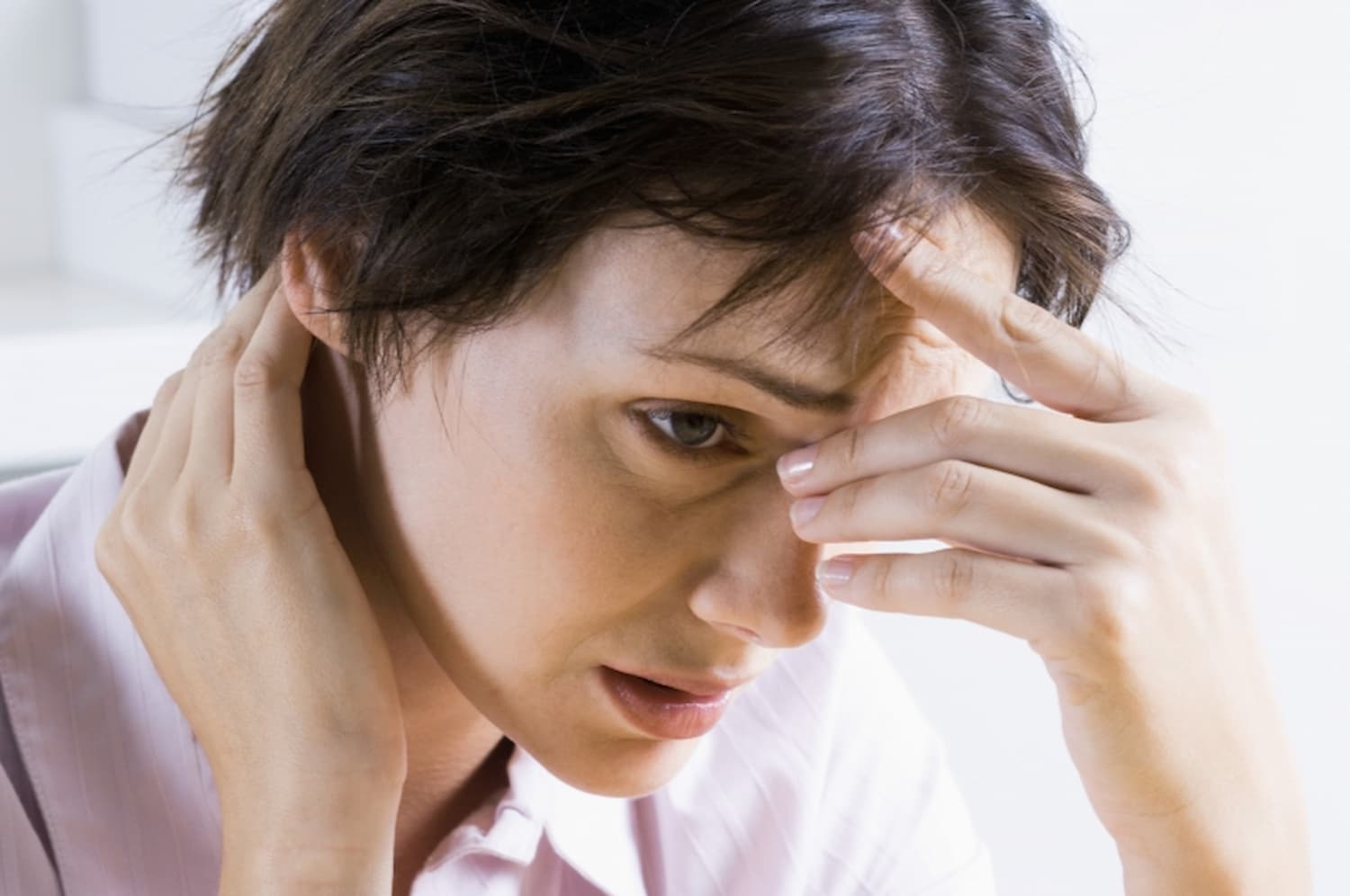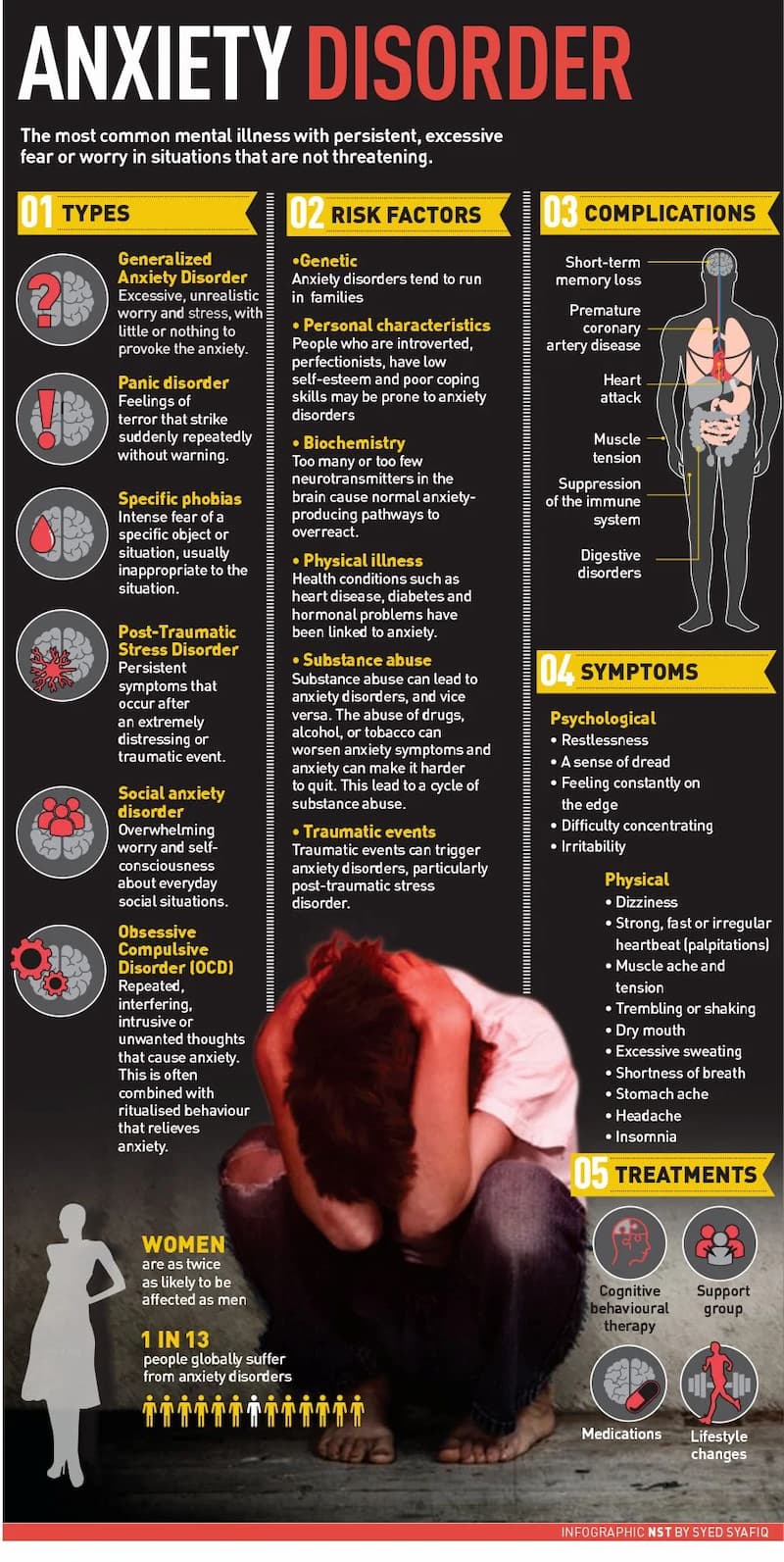
Anxiety is an awful, physically and mentally uncomfortable phenomenon that is easily explained as "fear of the future". If you think about the last time you felt anxious or worried about something, it will always be something you are concerned about happening at a later stage.
It's normal to think about things in the future and sometimes worry, as you can never be certain of what is going to happen; there's an element of faith that life will work out the way you want it to.
So, when that worry goes too far, it ends up being anxiety. The hallmark of people with anxiety disorders is constant apprehension or intense fear about something with an uncertain outcome. Worry is something short-lived that you can stop, while anxiety affects a person's daily life because it can be so strong that it interferes with their ability to function normally.
It starts as a little niggle but then it grows. Often, what people do when they are feeling anxious is they start thinking of lots of other situations that worsen their feelings of anxiety or promote excessive fear, so they go down a big anxiety spiral until they are so frazzled that they are a heap on the floor needing a glass of wine or chocolate to feel better.
Physical Symptoms of Anxiety Disorders
When a person has an anxiety attack, their nervous system becomes activated, and instead of being relaxed, they experience a variety of unpleasant sensations as their body prepares for actual danger, real or imagined. Then, not only do you feel mentally uncomfortable, but hormones such as adrenaline and cortisol are released, leaving you feeling depleted and exhausted. Below are the most common symptoms of anxiety:
- Increased heart rate or heart palpitations
- Rapid breathing
- Difficulty concentrating
- Dry mouth
- Sweaty palms
- Upset stomach
- Restlessness
- Sleep problems
- Nausea
Some symptoms of anxiety can be specific to the type of anxiety disorder. A person with social anxiety disorder dreads social situations because they're not comfortable during social interactions. People with separation anxiety disorder may have feelings of fear, if not extreme fear, when they are far from the person they love or trust. This type of anxiety condition is quite common in children.
Intense anxiety may lead to a panic attack, which is characterised by feelings of intense fear for no apparent reason. People with panic disorder describe the feeling as if they are having a heart attack.
Causes of Anxiety
While anxiety can be a symptom of many different mental illnesses, it can fall under various types of anxiety disorders, such as Generalised Anxiety Disorder (GAD), Obsessive Compulsive Disorder (OCD), Post-Traumatic Stress Disorder (PTSD) and Social Anxiety Disorder, have their own specific causes.
In some cases, anxiety may be a side effect of medication. Many factors can increase a person's risk of anxiety disorders, including family history, certain changes in brain chemistry, genetics and environmental factors. Other risk factors include:
- Traumatic experiences
- A stressful event
- Lack of sleep
- Poor nutrition
- Substance abuse
Anxiety can become a habit, and you can see that, especially when you realise that people will think of anxiety-evoking things when they are in a stressful situation. It is also very ungrounding, and when someone gets anxious, they leave their body and end up with all their energy in their head (and also often experience headaches or neck aches as well). The head is all about fear; its job is to come up with fearful scenarios of what might happen instead of saying "let's just trust in ourselves that it will all be OK!"
When you are in your head, you lose the ability to know that you'll be okay, allowing your racing heart and thoughts to take control and forgetting the last time you were fine. You cease to have a productive life because in your head, everything ends up feeling like life or death. Untreated, anxiety can lead to cognitive problems, heart disease, musculoskeletal problems and poor immunity.

Source: New Straits Times
Effective Treatments for Anxiety
So, what do you do when you feel anxious? First, you need to ask yourself, what am I so worried about? It can also help to write each time you feel anxious so you can see what the common thread is in your anxiety, as it will most likely be triggered by the same sort of things. Then the next thing to do is to practise breathing exercises. Take at least five deep belly breaths, feeling the stress and tension going down your legs and out of your feet with every breath. The more of these breaths you do, the better, as they are bringing you back into the present time (for more on present time, check out the article on "The Present Moment").
The more time you spend in the present time, the less anxious you will be. And the next time you get anxious, you will know instantly that you have left the present moment. So, do your breathing, come back to the present time and start using your energy resources to get to the bottom of what you are worrying about.
That's when you find your anxiety lessens and happens less often, and as a result, you feel more empowered and present in the moment to live life to the fullest.
Depending on the level of anxiety that you are experiencing, there are other treatment options available to help you manage persistent and excessive worry. A combination of medication, behavioural therapy and lifestyle changes can be helpful.
Originally published on Oct 24, 2011








